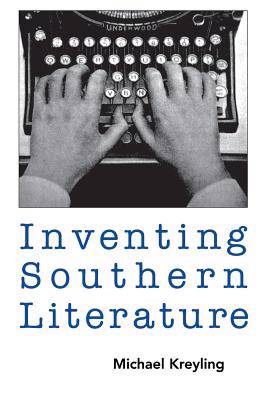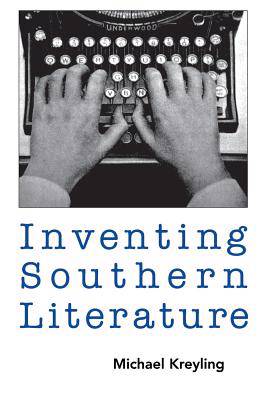
- Retrait gratuit dans votre magasin Club
- 7.000.000 titres dans notre catalogue
- Payer en toute sécurité
- Toujours un magasin près de chez vous
- Retrait gratuit dans votre magasin Club
- 7.000.0000 titres dans notre catalogue
- Payer en toute sécurité
- Toujours un magasin près de chez vous
Description
Winner of the 1997 Eudora Welty Prize "I take. . .an outward route, arguing that the Agrarian project was and must be seen as a willed campaign on the part of one elite to establish and control 'the South' in a period of intense cultural maneuvering. The principal organizers of I'll Take My Stand knew full well there were other 'Souths' than the one they touted; they deliberately presented a fabricated South as the one and only real thing." In Inventing Southern Literature Michael Kreyling casts a penetrating ray upon the traditional canon of southern literature and questions the modes by which it was created. He finds that it was, indeed, an invention rather than a creation. In the 1930s the foundations were laid by the Fugitive-Agrarian group, a band of poet-critics that wished not only to design but also to control the southern cultural entity in a conservative political context. From their heyday to the present, Kreyling investigates the historical conditions under which literary and cultural critics have invented "the South" and how they have chosen its representations. Through his study of these choices, Kreyling argues that interested groups have shaped meanings that preserve "a South" as "the South." As the Fugitive-Agrarians molded the region according to their definition in I'll Take My Stand, they professed to have developed a critical method that disavowed any cultural or political intent or content, a claim that Kreyling disproves. He shows that their torch was taken by Richard Weaver on the Right and Louis D. Rubin, Jr., on the Center-Left and that both critics tried to preserve the Fugitive-Agrarian credo despite the severe stresses imposed during the era of desegregation. As the southern literary paradigm has been attacked and defended, certain issues have remained in the forefront. Kreyling takes on three: reconciling the imperatives of race with the traditional definitions of the South; testing the ways white women writers of the South have negotiated space within or outside the paradigm; and analyzing the critics' use and abuse of William Faulkner (the major figure of southern literature) as they have relied on his achievement to anchor the total project called Southern Literature.
Spécifications
Parties prenantes
- Auteur(s) :
- Editeur:
Contenu
- Nombre de pages :
- 220
- Langue:
- Anglais
Caractéristiques
- EAN:
- 9781578060450
- Date de parution :
- 01-03-98
- Format:
- Livre broché
- Format numérique:
- Trade paperback (VS)
- Dimensions :
- 154 mm x 229 mm
- Poids :
- 362 g

Les avis
Nous publions uniquement les avis qui respectent les conditions requises. Consultez nos conditions pour les avis.






